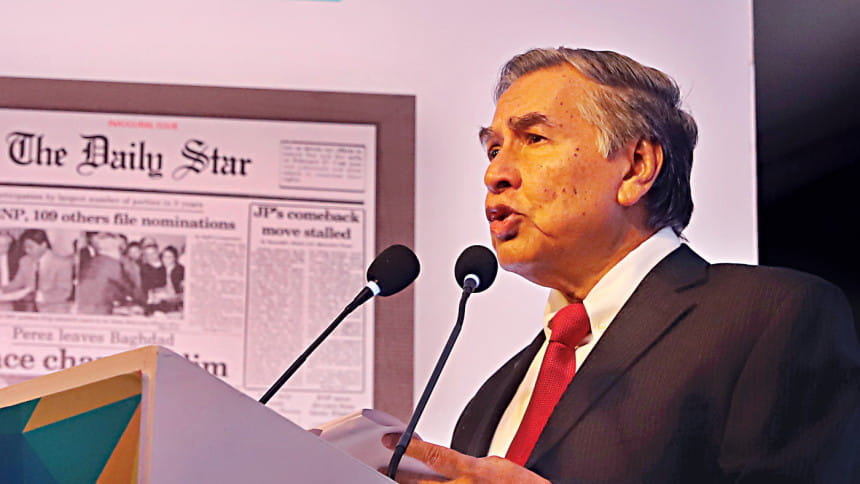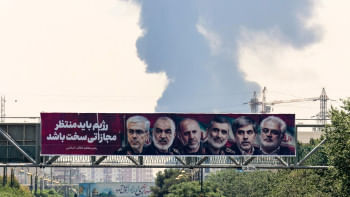‘Where’s the infrastructure for intellectual growth?’

Intellectual freedom is crucial for a nation's advancement, Mahfuz Anam, editor and publisher of The Daily Star, said yesterday.
"We are building roads, bridges, tunnels, etc for the growth of our economy -- all necessary, and we commend the government for it. But where is the infrastructure for the intellectual growth -- quality education, qualified teachers, 21st-century suited schools, colleges, universities?" he asked while speaking at the 32nd anniversary function of The Daily Star at a hotel in the capital.
"Where are the research grants that bring in new knowledge? Where is the incentive for scholars to devote their lives in pursuit of knowledge?
"The space, the environment, the laws, the institutions, the resources, most importantly, the culture of acceptance of multiplicity of views are needed most to reach the new stage in our development journey," he said.
"Most importantly where is that respect, that dignity, that prestige for scholars?
"Where is their place of honour in the hierarchy of our society, government or the state? I repeat, we must bring back the culture of respect into the mainstream of our society, especially respect for teachers and scholars. We are sick and tired of reporting how school teachers, college lecturers and university professors are treated in an undignified manner and even insulted. This is not our tradition and this will not lead us to the 21st [century] world," he said.
"We take a lot of pride, and justifiably so, in telling the world that we sacrificed our blood for our mother language. Now that we have the right to speak in Bangla, what do we say in that beautiful language of ours? Is it to only utter platitudes and pleasantries? Or to hurl abuse or profanities? Or is it to express something more profound, substantive, sensitive, meaningful and beautiful? How much of the creativity, originality and insightful ideas are we able to express in them? Of course there are exceptions but we must mainstream them.
"How much of our sorrows, our struggles, our dreams and our protests are we able to articulate? Here comes that crucial question that sustains our intellectual life -- freedom of thought, how much are we able to exercise [it]?
"The Pakistanis were trying to put the chains to keep us enslaved.
"We are now putting chains to keep us ignorant, unquestioning, devoid of curiosity and given to intellectual slavery of various kinds -- ideological, political, faith-based, personality-based, etc.," he added.
"If life is about change, if change comes from knowledge, if knowledge comes asking questions, and if questions come from a mind that is able to think freely, then doesn't 'freedom of thought' constitute life itself? Conversely doesn't the absence of freedom of thought constitute the total antithesis of life? No questions, no new knowledge and as such no life."
Pointing out the journey of the newspaper, he said it has come at a cost – of denigration, of maligning, of creating obstacles at every corner, non-cooperation, curtailment of advertisement, not being allowed to cover state functions at the highest levels, personalised abuse of the paper's leadership, direct and indirect pressures on our day-to-day functioning, etc.
"Yet, the paper, and those who work in it, happily paid the price and served its readers without fear or favour.
"It is in that spirit -- of service to the nation -- that we honour today 12 extraordinary individuals whom we call 'sentinels of freedom of thought' and pay tribute to them for what they have stood and struggled for throughout their lives as torch bearers of freedom of thought."

 For all latest news, follow The Daily Star's Google News channel.
For all latest news, follow The Daily Star's Google News channel. 



Comments